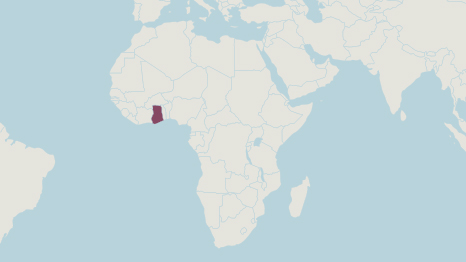STEM education in Ghana
Based on a belief in “changing Ghana through education,” Ghana is committed to the education of its young population. With ambitious reforms in the country’s education policy, the country is planning to harness the potential of these young people to create individual opportunities and strengthen the country’s economy, because only a well-educated population can confidently address national and global challenges.
Education in Ghana
Ghana is investing a lot to achieve its education goals. Spending on the public education system amounts to around 20 percent of all public spending. Starting in the 2017/18 school year, the government made secondary school free of charge. Higher education in Ghana is expanding significantly, and the value and appreciation for vocational education as a means of reducing unemployment is being recognized and supported through several initiatives. In particular, STEM subjects are gaining lots of attention, and the country is relying on them to create meaningful opportunities for the future. But it is lessons in these subjects – science, technology, engineering, and mathematics – that often lack a concrete link to students’ everyday lives. Not only does this lead to lower performance in these subjects, but it also means students do not consider promising careers in STEM when they leave school. This represents a good starting point for Siemens Stiftung’s work on vocational orientation in STEM education.

- Three-tier education system: Primary school (6 years), junior high school (3 years), and senior high school (3 years)
- Vocational education starting from 9th grade
- Education budget: 4.5 % of GDP (2017)
- WEF Ranking Maths and Science (2018): 90 of 137
- Important issues: Equal opportunity, improving scholastic education in science and technology, vocational training, and reducing youth unemployment
Our engagement for vocational orientation in STEM education
The Ghanaian ministry of education supports Siemens Stiftung’s efforts to strengthen STEM education. We focus on vocational orientation in schools.
International education program Experimento
Since 2019, Siemens Stiftung has been working in Ghana on teacher training and continuing education in STEM. These efforts target secondary schools. Our education program Experimento highlights vocational orientation and has been adapted to fit Ghana’s national curriculum. We aim to support teachers in creating STEM lessons that are not only good in terms of quality, but that also demonstrate the importance of STEM education to learners and make them aware of vocational opportunities. Competencies of the future, such as computational thinking, are an essential part of our cooperative work with Ghana’s Ministry of Education.
atingi – e-learning platform for Africa
To make our vocational orientation materials accessible to a wide range of people, we work with the German development organization Deutsche Gesellschaft für Internationale Zusammenarbeit (GIZ) on the digital learning platform atingi. The platform was developed by a team of education and digitalization experts as part of GIZ’s global Africa Cloud project in close collaboration with Smart Africa, the African Union’s digitalization initiative. In web-based trainings (WBT) provided by Siemens Stiftung on atingi and our Media Portal, users can access information and learning opportunities on vocational profiles (such as electricians or agripreneurs) while learning about the link between these fields and STEM knowledge.
Background material
Deutsche Gesellschaft für internationale Zusammenarbeit (GIZ)
German Federal Foreign Office
iMOVE
World Economic Forum
UNESCO








